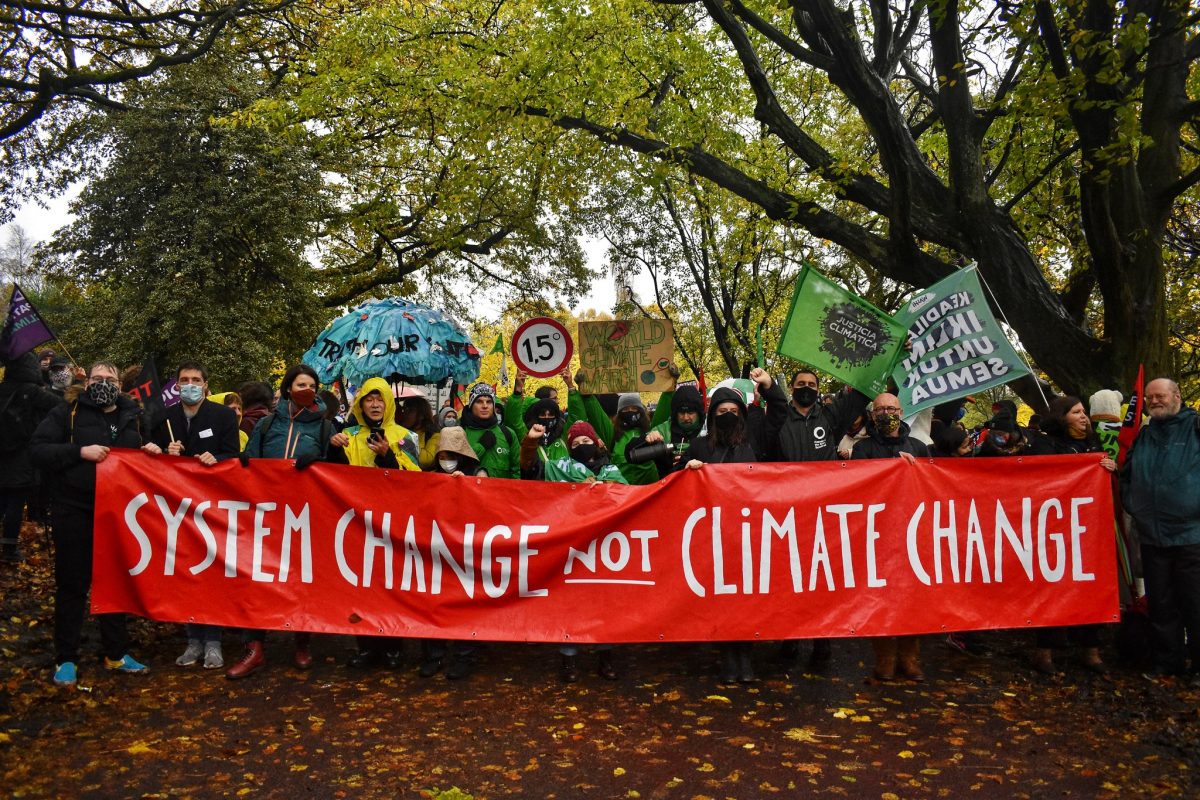
“Agreement” at Copenhagen is a recipe for confusion
“This US-brokered agreement is the weakest possible conclusion that could have come out of Copenhagen,” said Duncan McLaren, Friends of the Earth Scotland’s Chief Executive, commenting on the Copenhagen Accord noted at the UN climate change talks. “It simply adds to the confusion surrounding the climate regime that these talks were supposed to clear.”
The accord was not agreed in Plenary session, but simply ‘taken note of’ in a Decision. This makes it guiding, but not operational. It is likely to lead to ongoing arguments over its influence on each of the existing working groups.
Duncan McLaren said: “The US is claiming Copenhagen is a success. But this paper sets out the opposite. As a framework for a future binding deal, it risks condemning millions of the world’s poorest people to hunger, suffering and loss of life as climate change accelerates.
“Science and justice demand at least 40 per cent cuts in rich country emissions by 2020, not the maximum of 18 per cent in the accord: and without all the widening loopholes riddling this text. The gap between reality and this flimsy agreement yawns like a chasm.
“The accord also offers inadequate amounts of finance. Worse it tried to link access to finance to the acceptance of its other provisions – such as extended carbon markets, and weak and voluntary emissions reduction targets. This is another sad example of the coercive approach that has marred these talks.
“We need a profound change of approach from rich countries. The COP must also agree to continue negotiating the future Kyoto regime and to conclude those negotiations swiftly. And this time the commitments made must be delivered. No more excuses. No more empty promises.”
He continued: “Yet, if the support offered to the accord by many developing nations stimulates the rich world to adopt tougher targets and offer more public finance, then it may yet prove to have value. The ball is firmly in the court of the rich world now – developing nations have made massive concessions to accomodate the US in this process, on top of the huge climate debts they already bear. Before the talks reconvene the developed countries must move decisively to repay those debts.
“Otherwise, the losers from these talks will be billions of real people, while the winners will be the corporate lobbyists who want to continue business as usual in rich countries and expand carbon trading. They will benefit most from the commitments implicit here to expand carbon markets, especially in forests.
“Rich countries have been pumping out emissions for hundreds of years, effectively colonising the atmosphere. Now they seem to be expecting poor countries to pay most of the cost of cutting global emissions – and possibly to pay it in lives.
“A 2 degree rise in temperature, which is what world leaders have agreed to aim for, would still mean the deaths of millions of Africans and the complete destruction of at least four low-lying island states. And this agreement falls way short of delivering stabilisation below 2 degrees. The emissions cuts are less than half what is needed, almost entirely offset by massive loopholes, and entirely voluntary. A catastrophic rise of 4 degrees or more is a more likely outcome.”
Duncan McLaren concluded: “The real leadership at the conference has come from the leaders of some of the poorest countries in the world, and the hundreds of thousands of ordinary people who’ve come together to demand strong action to prevent climate catastrophe in solidarity with those developing countries. Their voices must be heard.”
ENDS
For media enquiries, please contact
Per Fischer, Press Office, Friends of the Earth Scotland
T: 07711855821
Notes to Editors
Friends of the Earth Scotland believes that a strong and fair agreement on
climate change would include measures which would see:
– Rich countries to fulfil their legal and moral responsibility to cut emissions first and fast – and pledge to cut emissions by at least 40 per cent by 2020 at home without offsetting; and provide adequate finance for low carbon development in poor countries.
– The leaders of rich countries to abandon their promotion of carbon trading, an irresponsible and dangerous gamble which will do nothing to protect us from catastrophic climate change;
– Proposals to be scrapped which would allow rich countries to buy chunks of forest whilst continuing to pump out emissions: an approach which won’t solve climate change or halt deforestation.
Friends of the Earth Scotland Chief Executive has been blogging from the climate summit in Copenhagen. duncancop15.wordpress.com
Friends of the Earth Scotland is the country’s leading independent environmental campaigning organisation, and is the only organisation in Scotland that is working for environmental justice, campaigning for the planet and its people. www.foe-scotland.org.uk
